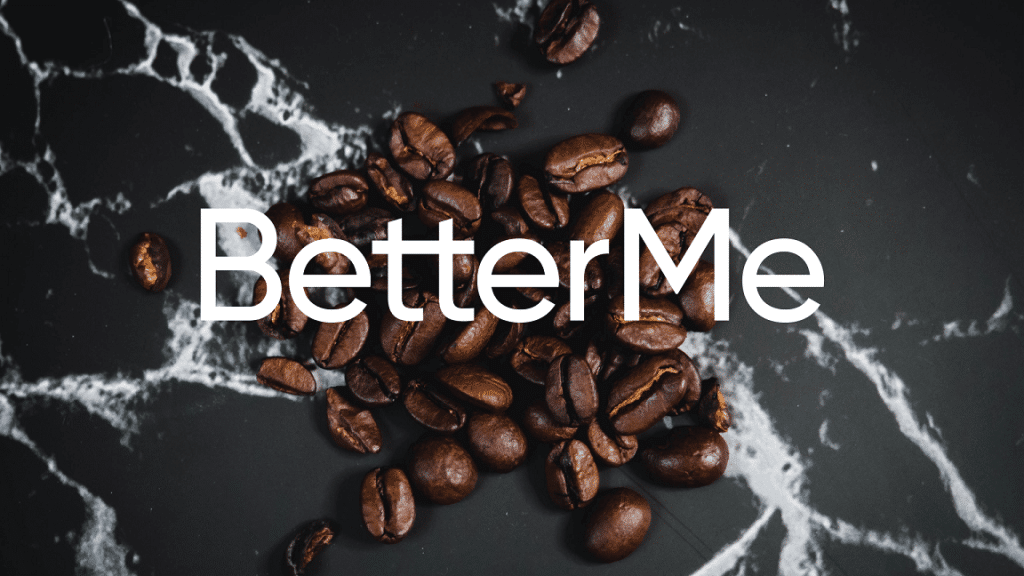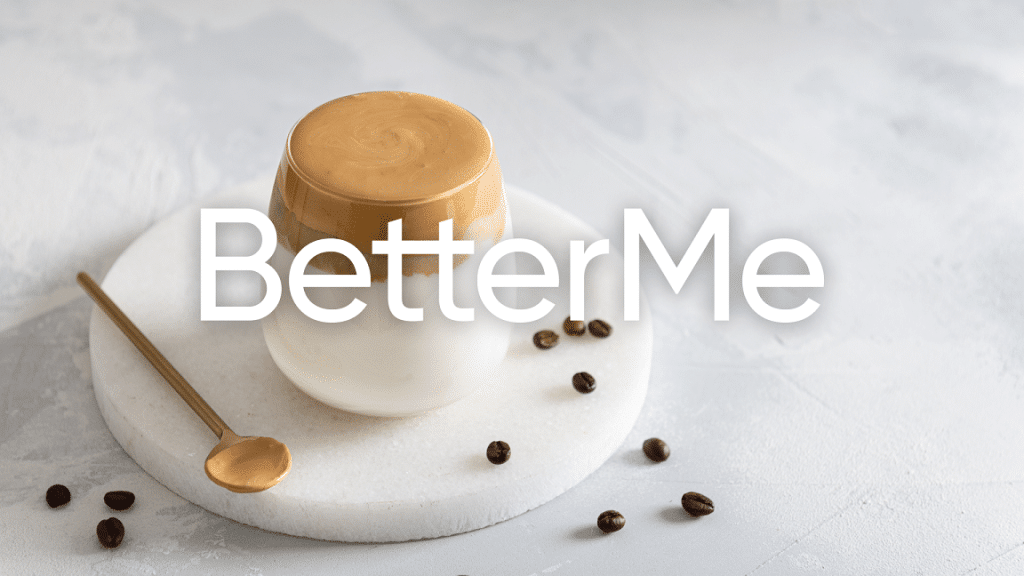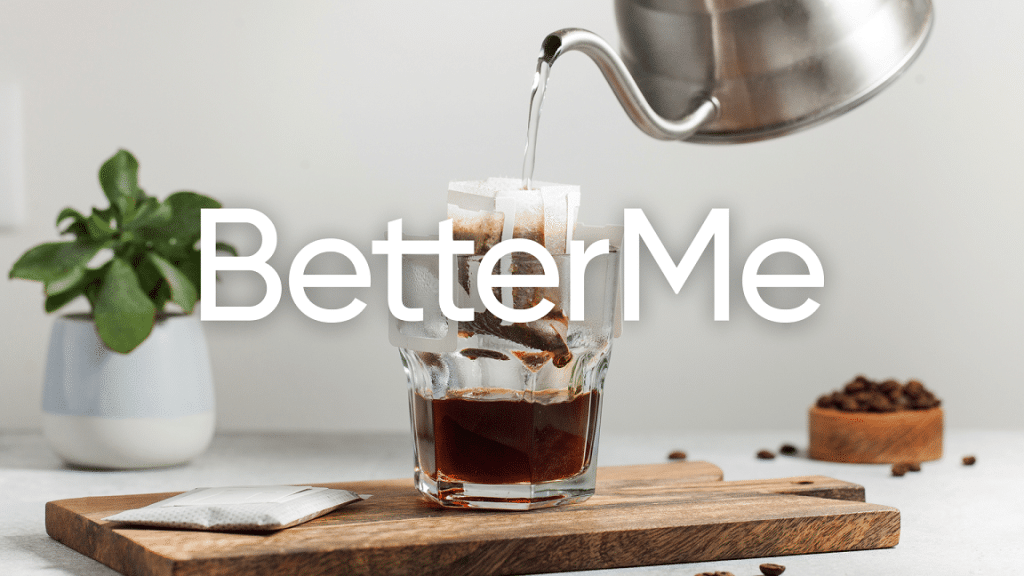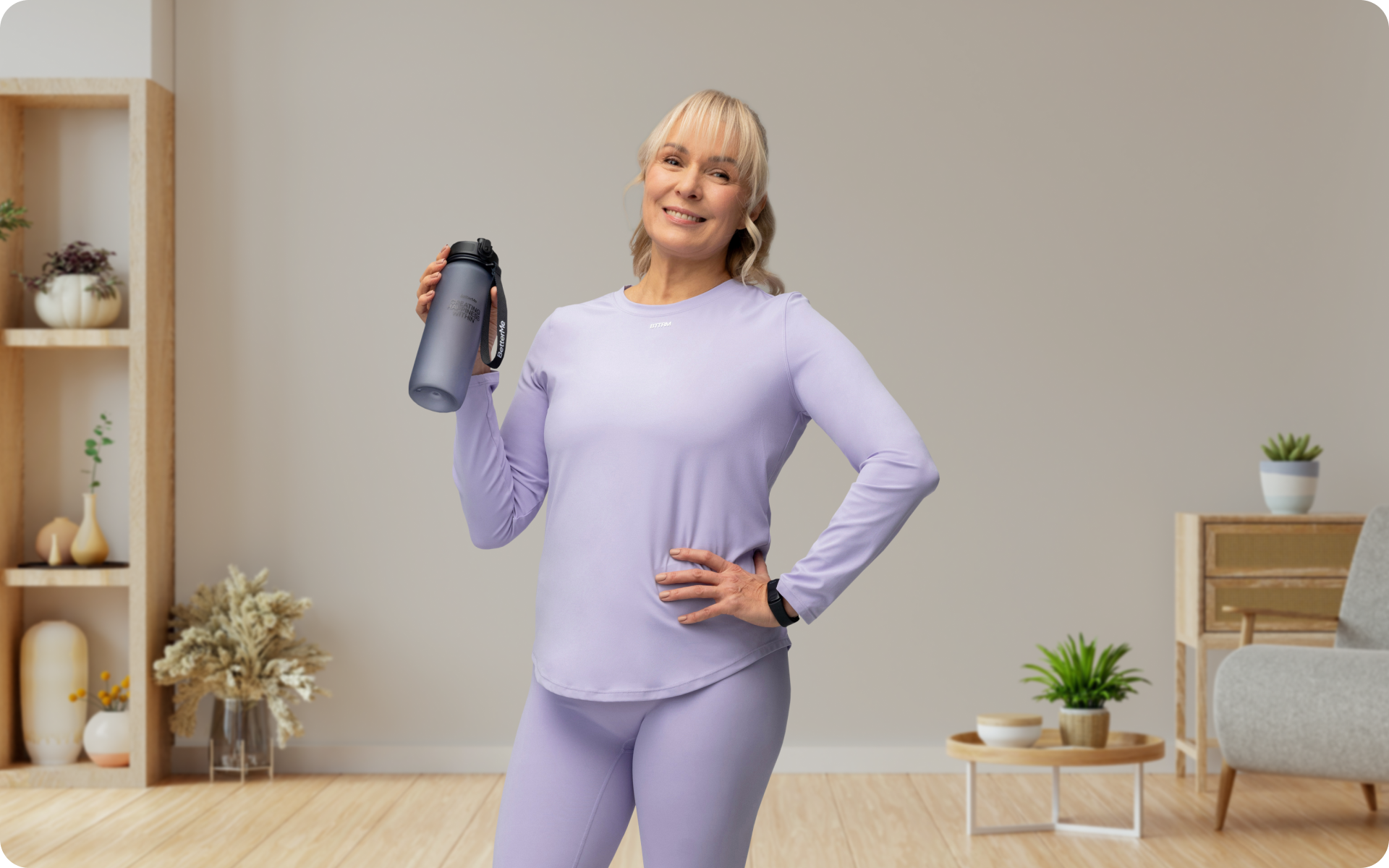You can’t work out without enough energy, right? That could be why you need a special stimulant to smash your goals without exhaustion and sore muscles. People love drinking coffee for different reasons: they believe it enhances performance, improves brain function, and gives your body a special boost for various activities. That said, there are general concerns about when it’s better to down another cup of black coffee – pre or post-workout. Even though most research is dedicated to the effects of drinking coffee pre-workout, in this article you’ll learn about the top benefits and drawbacks of drinking coffee after a workout.
Get your personalized
meal plan!
What Are The Benefits Of Drinking Coffee?
What kind of benefits pop into your mind when you hear the word “coffee”? An energy drink that gives your body a magical boost? We all know that having another cup of black coffee can invigorate us. Nonetheless, a cup of coffee is more than an energy booster and in a moment you’ll discover essential coffee-positive effects you would have never thought of.
- Coffee consumption has been associated with protection against Parkinson’s disease, liver cancer, type 2 diabetes, and liver disease (3).
- There is evidence that coffee may help people lose weight. One review described studies which found that higher coffee consumption was associated with lower or reductions in weight, body mass index (BMI), and fat mass (4).
- Coffee is a source of antioxidants that can help protect your body against free radicals. Free radicals may cause oxidative stress and inflammation which is linked to chronic disease.
The same review in 2018 suggested that antioxidants in coffee may protect from metabolic syndrome (4). Metabolic syndrome is a combination of risk factors for chronic disease including high blood pressure, insulin resistance, and obesity. It puts a person at risk of heart disease, stroke, and other conditions that negatively affect blood vessels.
Overall, the versatile benefits of coffee drinking have suggested this beverage to be not only a good source of energy but a good wellness promoter.
Why You Shouldn’t Drink Coffee After A Workout?
Coffee before or after workout? – the question that may puzzle everyone who loves both coffee and training.
You are aware that the caffeine in coffee is known for its ability to promote exercise performance (8). Besides, coffee may delay exercise fatigue and improve muscle strength.
If you’re a workout buff who starts the day with invigorated training then has a cup of coffee after exercising, this may benefit your muscle recovery and fat burning.
However, there is another scenario to consider. For example, you hit the workout before dinner. In this case, when you drink coffee after a workout you’re more likely to face disruptive effects on sleep.
The thing is, the effects of caffeine from coffee lasts for 3-5 hours, depending on the individual. Plus, half of the total caffeine you ingest remains in your body after 5 hours.
Hence, coffee consumption post-workout in the afternoon may lead to sleeping problems.
In order to avoid these adverse effects on your body, you should drink coffee no less than 6 hours before bedtime (1).
Another drawback of drinking coffee post-workout is that caffeine may worsen anxiety in some people. If you already have anxiety you may want to reduce the coffee consumption or switch to something with less or no caffeine.
To sum up, black coffee after a workout in the afternoon or evening may provoke insomnia or worsen anxiety. You can avoid this problem by working out before or after lunchtime or replacing coffee with something like green tea.
Read More: How To Make A Traditional Coffee Truffle (And Other Coffee Recipes)

How Soon Do I Work Out After Coffee?
Some people prefer drinking coffee before their workout. Drinking coffee before vigorous training may offer the following benefits:
- enhanced physical performance
- boosted their cognitive function
- potentially increased fat burning (9).
Moreover, caffeine in coffee can benefit cognitive performance. Caffeine may improve cognitive states associated with better athletic performance, such as:
- concentration
- alertness
- energy levels
- fatigue
The improvement in cognitive function is linked to enhanced physical performance. If you want to reap these essential benefits of coffee drinking you can consume the beverage 30-60 minutes before a sporting event or a workout.
It’s thought that the effective dose of caffeine for promoting exercise performance is 1.4–2.7 mg per pound (3–6 mg per kg) of body weight (5).
Why Drink Coffee After A Workout?
The previous information may have led you to the conclusion that drinking coffee after a workout is harmful. Nonetheless, integrating post-workout coffee consumption can lead to amazing benefits. This will work well for your body only if you drink the beverage at least six hours prior to your bedtime.
Check out the top 3 benefits of downing coffee post-workout.
- It mobilizes fats. Caffeine increases blood levels of the hormone adrenaline. This hormone travels through your blood to the fat tissues and signals them to break down fat and release them into your blood. This might help with the loss of body fat, including visceral fat. This is a major coffee benefit, which may help prevent future health risks. No matter whether you opt for black coffee after your workout or mix it with dairy, you will still feel the benefits and it won’t affect how the caffeine is absorbed.
- It replenishes glycogen. This point is beneficial to muscle recovery and is great for athletes. Bodybuilders or amateurs who focus on a specific set of muscles may recover faster due to coffee drinking after a workout. Here’s how it works: it increases the rate of glycogen synthesis, therefore, allowing the athletes to refuel muscles and recover quickly from rigorous exercising. Glycogen is a muscle’s primary fuel source during exercise which you can replenish more rapidly when you ingest both carbohydrates (eg. bananas) and caffeine after the training. Thus, you might improve your performance.
- It increases calorie burn. There is a resting metabolic rate at which you burn calories when you’re not working out. Coffee may enhance fat loss by increasing your metabolic rate. The higher your metabolic rate, the more calories your body burns at rest. Caffeine can increase resting metabolic rate by 3–11%. A shot of espresso or an americano after your workout provides a boost to your RMR. Therefore, after you’ve finished your workout you get a chance to burn more calories during the resting period with the help of coffee.
Let’s conclude. Is coffee good after a workout or not? If you consume coffee more than six hours prior to your bedtime you will have a chance to enjoy the essential benefits of the beverage on your health. Drinking coffee after a workout may break down more fat, replenish glycogen which allows your muscles to recover faster, and increase the calorie burn during the resting time. Therefore, coffee after workout fat loss is possible here but only when you mix your training with a healthy diet.
Looking for a way to break the vicious cycle of weight loss and tone up all the jiggly parts? Watch the extra pounds fly off and your muscles firm up with the BetterMe app!
Why Is Coffee Bad After A Workout?
Unfortunately, some athletes or sports amateurs don’t have enough time for daytime training and opt to hit the gym after lunchtime or before dinner.
In this case, drinking coffee after the training will be a bad idea since caffeine intake before bedtime can impair your sleeping.
Healthy sleep is more essential to your health than coffee because it aids in weight control and athletic achievement (7).
With the lack of healthy sleep you’re less likely to have energy to accomplish sportive activities. Sleep deficiency is associated with different chronic health problems such as high blood pressure, diabetes, obesity, depression, heart disease, and stroke.
Now you see the connection: you drink coffee before bedtime, may have insomnia, suffer from exhaustion the next day, and therefore, have no energy for further workout activities. Only in this case, you should avoid drinking coffee after a workout.
How Much Coffee And When To Drink?
Coffee can become a part of a healthy diet for most people but too much caffeine may expose a person to dangerous risks. Hence, such factors as body weight, medications, and individual sensitivity affect the dose for each individual.
USA Food and Drug Administration indicated that healthy non-pregnant adults can consume up to 400 milligrams per day. That’s approximately four cups of coffee which doesn’t pose any danger to a person. Still, depending on the coffee sensitivity this dose can change.
Over consuming caffeine can lead to adverse effects, such as:
- insomnia
- anxiousness
- jitters
- fast heart rate
- nausea
- upset stomach
- headache
- the feeling of unhappiness (6).
As was already mentioned the best time to drink coffee is at least six hours before your sleep. Therefore, you won’t interfere with your sleep and lower your levels of anxiety.
Read More: Green Coffee Bean Extract Benefits And Side Effects
If you tend to let yourself off the hook, raise the white flag when things get tougher than you expected, send yourself on an unconscious binge-eating trip – BetterMe app is here to help you leave all of these sabotaging habits in the past!
The Bottom Line
Coffee is a delicious beverage responsible for essential health benefits. It may promote weight loss, protect against certain serious diseases, and offers antioxidants.
In the article, you’ve learned about the top benefits and drawbacks of drinking coffee after a workout. Integrating coffee into your workout mix is a good idea for athletes and beginners. It enhances physical performance, revs up the invigorating levels, and aids in fat burn.
However, individuals are advised to consume coffee no less than six hours prior to their sleep. Drinking coffee before going to bed may provoke insomnia and anxiety. Sleep deprivation is linked to fatigue, heart diseases, diabetes, obesity, and high blood pressure.
Thus, there is nothing harmful in drinking coffee after a workout. All you need to consider is the timing and daily doses.
DISCLAIMER:
This article is intended for general informational purposes only and does not serve to address individual circumstances. It is not a substitute for professional advice or help and should not be relied on for making any kind of decision-making. Any action taken as a direct or indirect result of the information in this article is entirely at your own risk and is your sole responsibility.
BetterMe, its content staff, and its medical advisors accept no responsibility for inaccuracies, errors, misstatements, inconsistencies, or omissions and specifically disclaim any liability, loss or risk, personal, professional or otherwise, which may be incurred as a consequence, directly or indirectly, of the use and/or application of any content.
You should always seek the advice of your physician or other qualified health provider with any questions you may have regarding a medical condition or your specific situation. Never disregard professional medical advice or delay seeking it because of BetterMe content. If you suspect or think you may have a medical emergency, call your doctor.
SOURCES:
- Caffeine Effects on Sleep Taken 0, 3, or 6 Hours before Going to Bed (2013, ncbi.nlm.nih.gov)
- Caffeine Stimulation of Cortisol Secretion Across the Waking Hours in Relation to Caffeine Intake Levels (2008, ncbi.nlm.nih.gov)
- Coffee consumption and health: umbrella review of meta-analyses of multiple health outcomes (2017, ncbi.nlm.nih.gov)
- Do Coffee Polyphenols Have a Preventive Action on Metabolic Syndrome Associated Endothelial Dysfunctions? An Assessment of the Current Evidence (2018, ncbi.nlm.nih.gov)
- International society of sports nutrition position stand: caffeine and performance (2010, ncbi.nlm.nih.gov)
- Spilling the Beans: How Much Caffeine is Too Much? (2018, fda.gov)
- Surprising Reasons to Get More Sleep (2021, webmd.com)
- The Effect of Acute Caffeine Ingestion on Endurance Performance: A Systematic Review and Meta-Analysis (2018, ncbi.nlm.nih.gov)
- What are the pros and cons of drinking coffee before a workout? (2021, medicalnewstoday.com)













